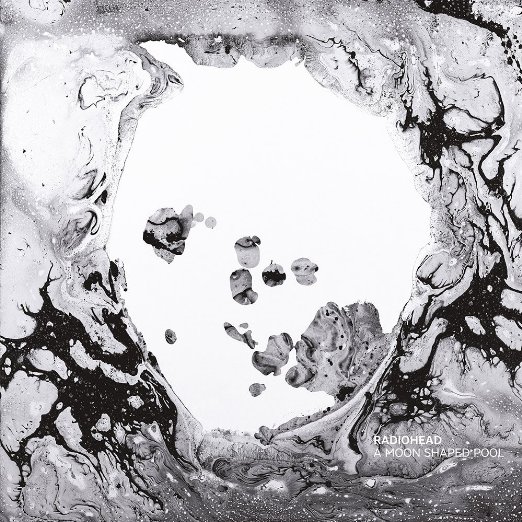I think one can make a cohesive argument that Radiohead’s new album A Moon Shaped Pool is the Billie Holiday of our generation. Holiday was the luscious voice of those victimized by New Deal liberalism, the black and brown people who were thrown under the bus by FDR to maintain a coalition with the Solid Southern Democrats that practiced Jim Crow apartheid. And so this band is the voice of a generation victimized by raw deal neoliberalism, the young people who are made peons to feudal debt, pensioners subjected to austerity, and home-owning working people who thought that class and all those silly Marxist phrases had gone into the rubbish can of history after the collapse of the USSR, not to mention the masses victimized by our free market approach to global warming.
At the outset, it is worth emphasizing that Radiohead is probably never going to be back at the place it was with albums like OK Computer or Kid A. Those were records created before 9-11 and the never-ending bipartisan War of Terror. Patrick Cockburn, my personal preferred Middle Eastern beat reporter, recently gave a fantastic interview that explains the world Radiohead has been releasing their albums into since 2001:
The diaries [that make up your new book] go back to 2001. What can this long-ish view tell us that wasn’t apparent in day to day dispatches?
It was not apparent until quite recently that the nine wars now going on between north Pakistan and north west Nigeria – Afghanistan, Iraq, Syria, south west Turkey, Yemen, Libya, South Sudan, north east Nigeria, Somalia – were part of a post-Cold War pattern in which states that had achieved independence and self-determination were destroyed or weakened by foreign intervention fueling and exacerbating internal discontents. There is a mix of on-and-off imperial intervention, sectarian war between Shia and Sunni, conflict between Saudi Arabia and Iran, dictatorship and revolution.
That world had its antecedents in the go-go Clinton 1990’s, particularly in the siege of Yugoslavia and the Clinton sanctions regime of terror that laid the groundwork for Bush’s melee in Iraq, but back then Westerners had a collective smug-as-hell grin that said “we won the Cold War, what could go wrong?” And so Radiohead’s masterpieces were really huge  questions, inquiries into whether Microsoft and globalized consumer good supply chains were really the utopia they were made out to be.
questions, inquiries into whether Microsoft and globalized consumer good supply chains were really the utopia they were made out to be.
That utopian dream died on 9-11 and so did the ability to create albums like Kid A or OK Computer. What took their place was the fury of an album like Hail to the Thief or even Thom Yorke’s solo project, The Eraser — records that boldly said no to the neoclassical economic coup under the auspices of Clinton, Bush, Blair, and Obama and the resulting imperialism created in their wake.
The first two singles from the record, Burn the Witch and Daydreaming whose music videos I dissect here, are probably the most typical songs on the record and in that sense perhaps the weakest. An editor of mine told me he thinks that their use of piped-in orchestral music is getting a bit old, which is not easily denied, the whole cheap homage to Phil Spector’s Wall of Sound is a bit banal. But as you proceed forward, things become more akin to the better experiments of David Bowie or Lou Reed. The song Ful Stop reminds me of sections of the classic proto-noise album Metal Machine Monster or perhaps even The Man Who Sold the World.
But there is a hint at the end that Radiohead wishes badly they could return to two decades ago, back when things seemed much simpler. My research indicates the final song on the record, True Love Waits, was performed in concert back in 1995. Like another sonic exploration, Pet Sounds by the Beach Boys (released 50 years ago exactly this week), the album has in its coordinates a simple question, Wouldn’t It Be Nice?